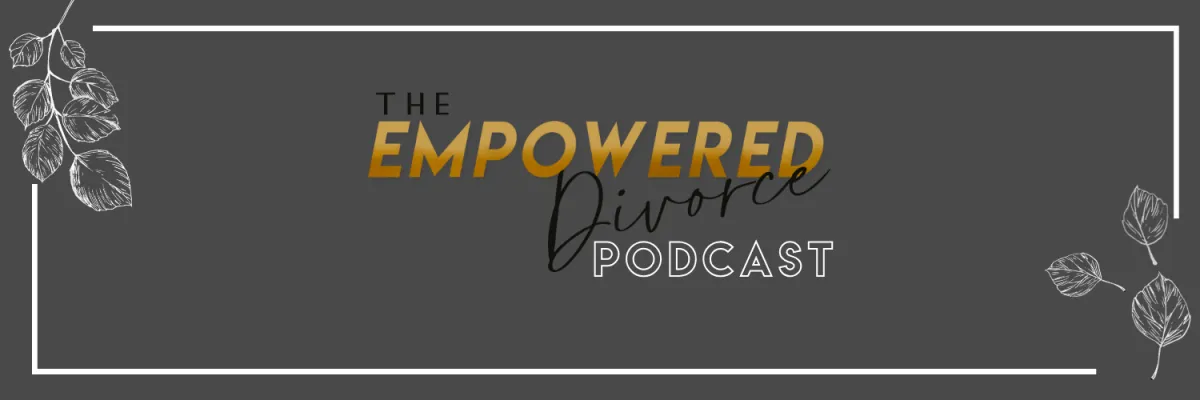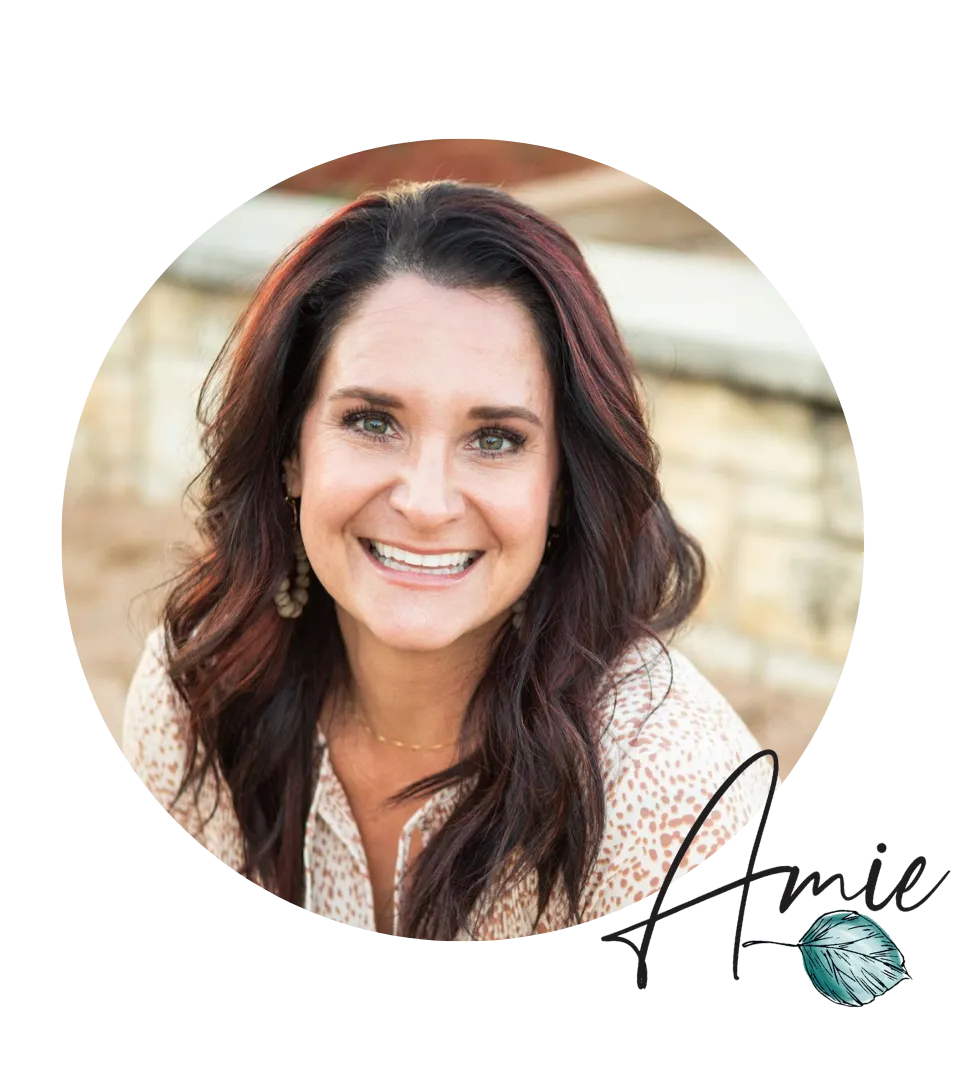
Life After Divorce: 5 Steps to Writing the Next Chapter
Those of you who are going through a life-saving divorce, divorcing due to betrayal, divorcing because the life that you thought you were living—the reality that you thought you were living—has suddenly become a completely different reality, a completely different story.
Many times the shock of all the lies, the shock of the lack of integrity—that this person you thought you knew—that shock can remain with us for quite some time.
Read Full Transcript
Hello. Hello. My amazing, beautiful listeners, welcome. Thank you for being here with me today. Thank you to those of you who have been leaving reviews and following, clicking the follow button. It has helped. Please, if you have not already done so, it would be so helpful to continue spreading the word and getting this message out there.
Those of you who are going through a life-saving divorce, divorcing due to betrayal, divorcing because the life that you thought you were living—the reality that you thought you were living—has suddenly become a completely different reality, a completely different story. Many times the shock of all the lies, the shock of the lack of integrity—that this person you thought you knew—that shock can remain with us for quite some time.
I've given different analogies over the years of doing this podcast so many different times. Yet experiencing this to this degree, to this level, where the divorce most oftentimes isn't amicable… while you're going through the thick of divorce, you're still wrapping your head around who this person is. You're still finding yourself confused over who this person really is. Oftentimes they're presenting to be someone completely different, and other people are still believing this masked person. It can also create some additional confusion around who this person really is.
All that said is really just wanting to validate that the kind of divorce that most of you listeners are having is different. That in and of itself can be really frustrating, especially when people don't really get it or understand. Being able to make this podcast more visible for those who are confused, who don't have a language yet to really describe their own experience and why it feels so different and maybe why family don't understand. When you just take some time to click the follow or leave a review, it really helps other women get this message. So I really appreciate you taking the time to do that.
I wanna start today by speaking to the part of you that maybe feels done. Not done as in healed and ready to run a marathon, but done as in, “I have been through so much, I don't even know what's left for me.”
When you stood at the altar, when you built a life with someone who you believed you were co-writing a story together, you were both maybe on the same page—sometimes you felt like you were on different pages—but ultimately you believed that you were co-authors to this story, to your love story, to your life. Then one day, without your consent, the pen was ripped out of your hand and suddenly you're staring at the pages wondering, “Huh? What just happened? Is that it? Is this really it? Is this book really over? Is this really how my story ends?”
It is real. It is heavy. I want you to know nothing is wrong with you.
You are still the author. The best chapters are yet to be written.
The one where your dreams that you built now live in past pages of that book. The grief that floods you when you realize the future that you planned together doesn't exist anymore—it is so real, it is so heavy. And that's why you are here today. And I want you to know nothing is wrong with you. You are not weak for feeling this way.
When you go through betrayal and divorce, oftentimes your nervous system is gonna be stuck in that last chapter. Trying frantically to flip through the past pages, figuring out, “Wait, where did we get so off track? Maybe we were a page or two apart, but I had no idea that we were this far apart.” And you might find yourself metaphorically flipping through those past pages, reading and scouring and rereading, trying to figure out how it all went wrong.
“How in the world is this book ending this way?”
And oftentimes many of you are rereading the painful pages over and over, trying to remind yourself, “Okay, wait. Yes, that happened. Okay, wait. Yes, that was wrong, that that happened.” Because you're also trying so hard to stay in reality.
I remember reading my journal entries over and over and over. I remember reading through past text messages that were really, really abusive and degrading. Not because I loved reading them, but in some way—it makes sense to me psychologically now—in some way it helped me go, “Okay, yes, this is real. Things are not okay. He's not okay. He's not safe.” Because you're still trying to make sense of all the pages of the past.
Your mind believes that if you can just figure them out, figure it out, just understand the why enough, then you'll be able to change the ending. But here's the thing: you cannot change the ending of that last chapter. In fact, the book that you thought you both were writing never existed. He was on a completely different novel.
What you can do now is turn the page. That doesn't mean pretending that the last chapter didn't happen. It means trusting that there's more story ahead—that you get to be the author of it.
The human brain is an incredible storyteller. It will follow whatever script that it's given. When you start taking even the tiniest steps forward, you begin writing new lines in your story. New experiences, new choices literally rewire your brain. That's neuroplasticity in action, and your brain's ability to adapt, to heal, and to create something new is incredible.
The twist is—the plot twist is agency. Agency is your greatest plot twist. The single biggest predictor of healing isn’t what happened to you—it’s your ability to reclaim authorship and make even the smallest micro choices that now start to align with the life that you want to live.
How many of you know the book The Monster at the End of This Book about the little furry, lovable friend Grover? I think I've talked about him before. I've used this book—it’s just one of my absolute favorite books. So many beautiful analogies that we can pull from this children's story.
But let's talk about Grover for a minute. In this children's book, Grover spends the entire story trying to stop the reader from turning the page because he is so terrified at what's at the end of the book. He begs, he builds walls, he pleads—anything to avoid moving forward.
And then, spoiler alert: the monster at the end of the book—it's him. And it was always just him.
When we've been through betrayal, we can become like Grover. Parts of us try to stop us from moving forward because we don't know what's coming. We imagine it's going to be too scary, too painful, too uncertain.
But I wanna share three principles that I think will really help you to start turning the pages of your story again.
Principle number one: Fear that you will absolutely feel isn’t a stop sign. It's a compass. If the next page feels scary, it might be because growth is waiting there for you. Growth is never comfortable. It can’t be. When we look at it physiologically, when we grow our muscles, it is sore, it is uncomfortable, and oftentimes painful.
Principle two: You cannot skip to the ending. This is where I see a lot of clients come in and say, “Give me the checklist. I just wanna get to the end of my story. I don't wanna go through all of the pages. I don't wanna even write the pages. Can I just skip to the end?” But you can trust that the story is unfolding toward you. Not the broken, betrayed version—but the higher self you.
We don't wanna skip. There's nothing to really skip.
Because when you really do start to take the pen in your hand and turn the page and start writing your next chapter, the ending is always you. That is your focus—that everything you are creating is with you in mind.
Principle three: Curiosity over control. Grover tried to control the reader, right? He tried to build walls, beg, plead, tell the reader, “Don’t, no, no, no, no, no, no. Do not turn the page.” Healing is about softening into curiosity, not control.
Control is a protector. I get it. It feels safer. But letting yourself wonder: what might happen if you keep going? What might happen if you really do step into your power, your agency, and choose for you? Even if you don't have all the answers right now. When you know and believe that ultimately your higher self is always at the end of the book, it lessens the fear and it helps you step into more curiosity.
When we're in curiosity, we are open to seeing more options, to wondering: What might happen if I did trust myself? What would my next right step be if I knew that I had my back? If I knew that I am at the end of my story, then what would my next step be?
So many of us have these fears about what that next step looks like, about what the future looks like outside of the book, the story that we thought we were writing—and that makes so much sense. I had no idea. No idea what my life was gonna look like. And I remember even thinking what it was supposed to look like now, really taking my choice, my agency, out of that creation with that statement right there.
But one thing that I often see a lot of us do, just naturally as humans—because we have these human brains—is that when we consider what our story is, when we try to consider what our future might look like, we're going to have that fear show up.
Oftentimes we're associating what we want to do, think we should do, hope to do—whatever that thing is—we associate it, we attach it to us, to our worth, our value, our enoughness, our lovability, our acceptance, and society or attachment. And when you really separate your experiences that you're having in life from you—who you really are, you at the end of all of this…
Okay, going back to that child’s book, The Monster at the End of This Book—it was Grover. It was him. He was at the end. When you really see that you are at the end—the higher, whole, enough you—it will help you to detach from the many experiences, the many chapters that will be a part of your story.
When we really embody this, we're able to see options. We're able to write many chapters. We're able to accept that things might not work out. A lot of us are afraid of failure. A lot of us are identifying and believing, maybe even hearing from other people, that our marriage failed. And then we make that mean something about us—our enoughness, our lovability, our worth, our value—separated.
Those of you who are scared to get into a new relationship, get married again, try again, write a new chapter around relationships—you’re afraid. You're afraid that it's gonna end and fail again. When you are identifying these experiences that we have with worth and value and enoughness and lovability, of course you are going to be paralyzingly afraid.
When we can separate it, when we can distance ourselves just a little bit more and know the experiences that you have do not take away from your enoughness or worth or value—in fact, when you hold onto your agency and choice, you get to constantly create that.
Creativity is more fluid in your life when you are already 80% fluid, right? Your body is made up of water—80% water. When we're already so fluid, we need to lean into that more. We try to make things so rigid, so calculated. We need that outcome. We need to know because we're so afraid of turning that page because we don't know. Then the what-ifs—because we are attaching so much more than I think we realize to our worth and our value.
If you believe that you are already enough, you are already whole and complete, what would you be willing to try? What title to your next chapter would you create?
How do we keep turning the pages of our own life, when most of us just wanna slam the book shut, bury our head under the covers, and not go on?
Four things.
Number one: Micro page turns. Do something small every day that’s different from yesterday. Call a friend. Rearrange a drawer. Try a new recipe. Go on a walk. Walk an extra half mile. Drink nine glasses of water instead of eight. It does not matter. But when you are again rewiring—goes back to building the neuroplasticity, building the endurance, doing something different—micro turns create change. Because you don't have to rewrite the whole entire book in a day.
I don't know about you, but that is subconsciously what I felt like I had to do. I felt like I had to rewrite the whole book, figure out what that ending was. The truth was, I forgot that I was at the end of my story. I forgot. I didn’t know.
Number two: Anchor yourself into your values. This is an opportunity for you to redefine, realign, and recommit to your value system. Every new page is an opportunity for you to live from who you are now today—not who you had to be in your marriage, not who you believed you thought you should be, or who you even think you should be now. It's, “How do you wanna live today?” Every new page is a chance to live from that place today. When you redefine, realign, and recommit to your value system, it is the guide. It is the foundation for how you choose to live today. So anchor into those values.
Number three: Name your chapter. Give it a name. Give it a title. Literally write it down. Give this season in your life a title that feels even slightly hopeful. Like: I'm learning to breathe again. I'm rediscovering me. I'm putting one foot in front of the other. I'm believing that I really am at the end of my story. I'm starting to believe that I am whole, complete, enough, just as I am. I'm stepping into true agency, choice, and freedom today. Name your chapter. Write this somewhere that you're gonna see it.
“I am not done. This is not the end. I am still writing.”
Write that somewhere where you will see it every day as a constant reminder that you hold the pen, that you are going to be the author of your story—because no one else can. If you believe that something else, someone else, or even your past pages are going to be the next chapters in your story, you are mistakenly wrong. You have to be the author.
Many of us inadvertently—whether it was through culture, belief, many different reasons—many of us handed the pen, didn’t even realize it, handed the pen over to a person that did not have our best interest, that was not invested in our story, that did not have us at the end of our story. It was only themselves. We lost that pen a long time ago. Take it back. Be the author of your story.
Look, I get it. Some of you might be going, “I don't want to turn another page, Amie. I am not ready.” And you know what? That's okay. Readiness doesn't happen in one big, magical moment. It usually starts with tiny nudges. That's why we go back to micro turns. Sometimes you'll feel pulled forward, and other days you'll feel like you've been shoved back into the old chapter against your will. Both are parts of the process, I promise.
It's also worth saying that turning the page isn't betrayal of your past self. You aren't leaving her behind. You're carrying her forward—with all of her wisdom, all of her scars, and all of her grit. You are not erasing the pain. You're building something from it. So all of the past parts of you that are in those past pages get to come with you. We don't have to leave any of those parts behind.
Give yourself permission to take ownership of this next chapter of your life. Take your permission slip to stop waiting for someone else to come in and write your story for you. Sometimes the person who hurt you doesn’t get to have the final word. The circumstances that broke you don’t get to dictate the plot from here. You do.
That doesn't mean that you'll know exactly what to write. Sometimes the page will be messy. Sometimes it'll be a bunch of scribbles that don't even make sense until much, much later. That's still progress, I promise. That's still your story being told by you.
Once I found out I was pregnant, I got a journal just for them, and I began journaling about my experience during pregnancy. I kept that journal until they were about, oh, age 12, writing all of the little cute, funny things that they did. To help myself remember to even do that, I would leave their little journals on my kitchen table or just out and about. As you go through my kids' journals, every single one of them has scribbles in pen or crayon or something. In fact, one page has like a smear of chocolate on those pages of their journals, because I did leave them. They would come up and they would grab the pen and they would scribble.
And I remember the first time I saw that, I was like, “Oh no, they've ruined the page.” Now when I look back at that journal of that child and I see scribbles all over that page, it is part of the story. It doesn't have to make sense. Now when I look back at that child's journal and I see the scribble, it makes so much sense. It adds to the beauty of the story of that part of my life.
This is still your story being told by you—even if it's a bunch of scribbles right now. Invite curiosity about what's next. Going back to that step of curiosity: I wonder what would happen if you approached your next page with a curiosity of the reader who trusts the author. If you believed, even just for a moment, the rest of the book might hold joy, might hold connection, laughter, even the version of you that feels free and safe and deeply herself—maybe for the first time ever. How would that change the way that you turned this page?
Grover spent the whole book afraid of the ending, only to find out that the monster at the end of the book was him—that he was really just afraid of looking at him.
This is why I wanna encourage you to continue to do your healing work. Healing work is looking at you—the parts of you that you might not wanna see—but we have to look at those parts. Especially if you wanna change the pattern, especially if we do wanna write a different story. Because you still are always you at the end—the real you at the end of the story.
Let's figure out who that you is. Let's start defining for yourself, rather than letting betrayal, loss, hurt, abuse, and divorce define you. The you that has lived through the hardest chapters of your entire life and still found her way forward.
When you feel that fear rise, catch yourself wanting to glue those pages shut. Remember that your story isn't over
You are still the author. The best chapters are yet to be written.
Because you get to create the life that you want. You are the chooser in your life, and you get to create the life, the chapter, the page, the scribbles—and turn that page.
Because you can.
Take care, everybody.







Facebook
Instagram
Youtube